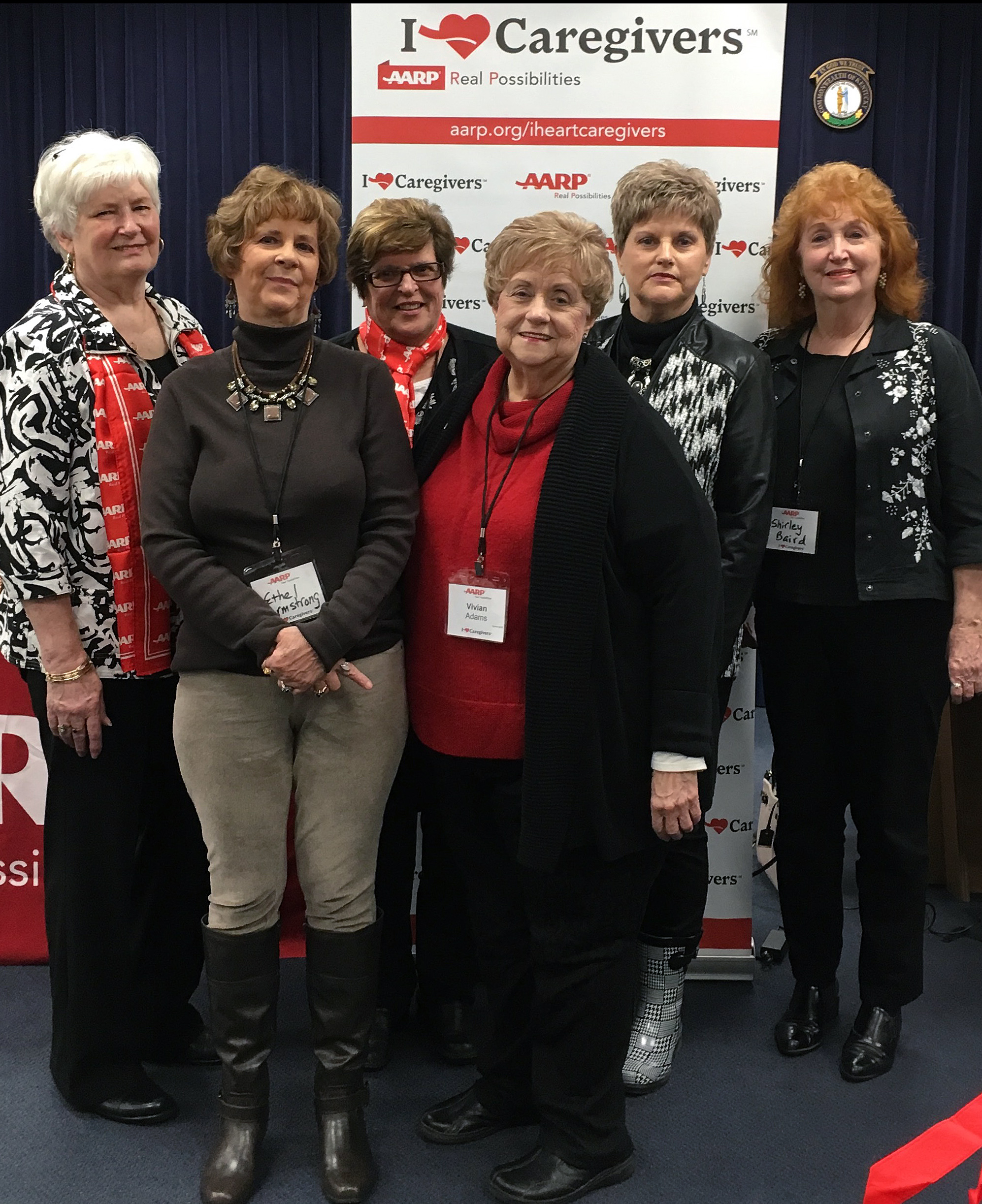AARP Hearing Center

Chasity T., from Kentucky, has cared for her husband Allen since 2005 when he returned from Iraq injured by an IED blast and suffering from traumatic brain injury (TBI), post-traumatic stress (PTSD) and nerve damage to his hips and back. She helps him with his daily activities, manages his 14 medications and tries to keep his anxiety and anger levels low. She became a full-time caregiver to her husband in 2010 as his health continued to worsen. She struggles to raise their two daughters, attend to all of her husband’s needs and make his VA appointments.
Chasity is not alone. She is just one of nearly 650,00 family caregivers across Kentucky who work tirelessly caring for older parents, spouses, friends, or other loved ones so that they can continue living independently, with dignity, at home—where they want to be.
With the vast majority of Kentucky residents wanting to remain in their homes and communities as they age, the contribution of family caregivers cannot be overlooked. This silent army is the backbone of elder care in our state, providing unpaid care valued at about $7 billion annually. Without the help of family caregivers, too many of our seniors would end up in costly institutions – often paid for by the state, through Medicaid.
Today, family caregiving is now a common family dynamic. If you’re not a caregiver now, you were one in the past, or will likely become one in the future.
The average family caregiver is a 49-year-old female taking care of an older woman; she has been doing this for four years. She will devote about 24 hours a week to helping her loved one with tasks like trips to the doctor, bathing and dressing, meal preparation, and chores around the house. Along with being a caregiver, she has a full or part-time job, so caring for her loved ones is done in her “spare time.”
For some family caregivers, their role is more involved as they care for a loved one 24 hours a day, seven days a week, often performing complicated medical tasks like wound care, injections, and medication management—once in the domain of only doctors or nurses.
That’s why AARP is fighting for HB 519, the Kentucky Family Caregivers Act, to help family caregivers when their loved ones go into the hospital—and as they return home. It will give family caregivers the support they need by, requiring hospitals to record the name of the caregiver when their loved one is admitted, notify the caregiver when their loved one is to be moved or discharged, and should instruct the caregiver on the medical tasks they will need to perform at home.
As we try to reign in health care costs, reduce costly hospital readmissions and trips to the emergency room, arming family caregivers with the information and knowledge they need to safely care for their loved ones at home is paramount.
The vast majority of Kentuckians are supportive of the Kentucky Family Caregivers Act, according to a telephone survey commissioned by AARP October 2015. In fact, 95% respondents say they support the requirement of explanation and live instruction of medical tasks that should be performed by caregivers. The survey found sweeping support for the legislation across political party lines and ideological leanings.
Bottom line: family caregivers do remarkable things every day to care for their loved ones—but this labor of love is not without its challenges. More than four in 10 family caregivers are very or extremely emotionally stressed. For family caregivers who provide assistance for more than 24 hours a week, sacrifice time away from family and friends, or live with the loved one for whom they are caring that stress is, not surprisingly, increased.
While they would not have it any other way, family caregiving is a big job and caregivers could use a little help. AARP thanks the Kentucky House of Representatives for passing the Kentucky Family Caregivers Act and urges the Kentucky State Senate and Governor Matt Bevin to support the nearly 650,000 family caregivers across Kentucky and pass the Kentucky Family Caregivers Act.































































